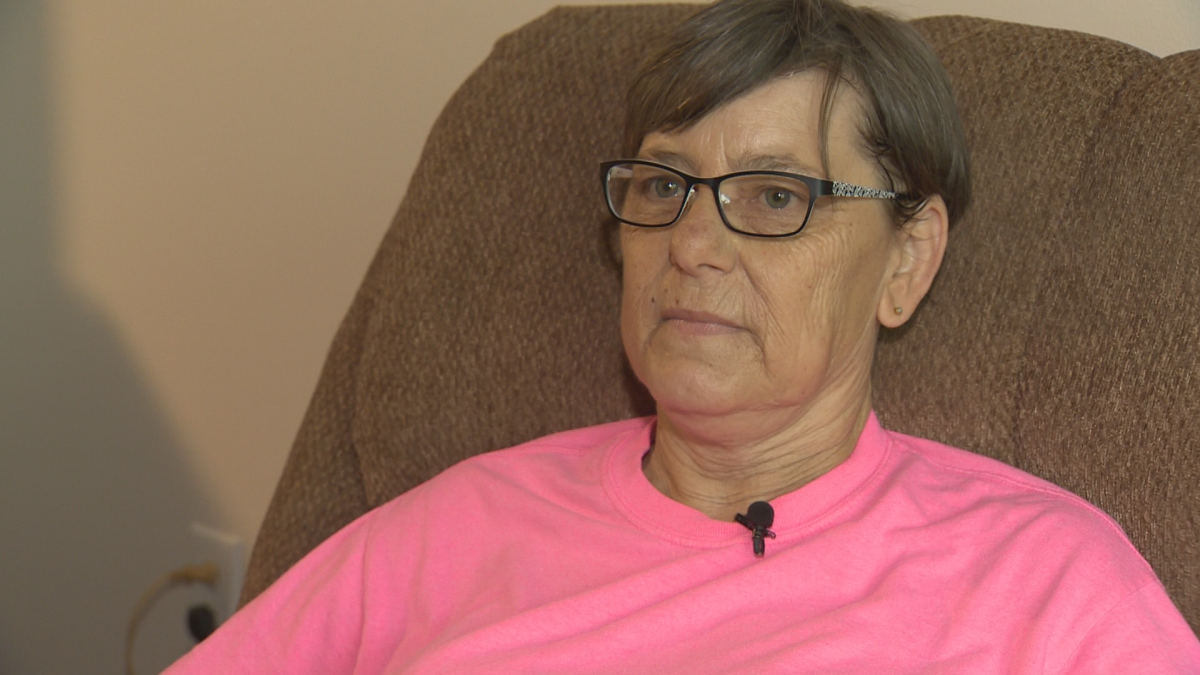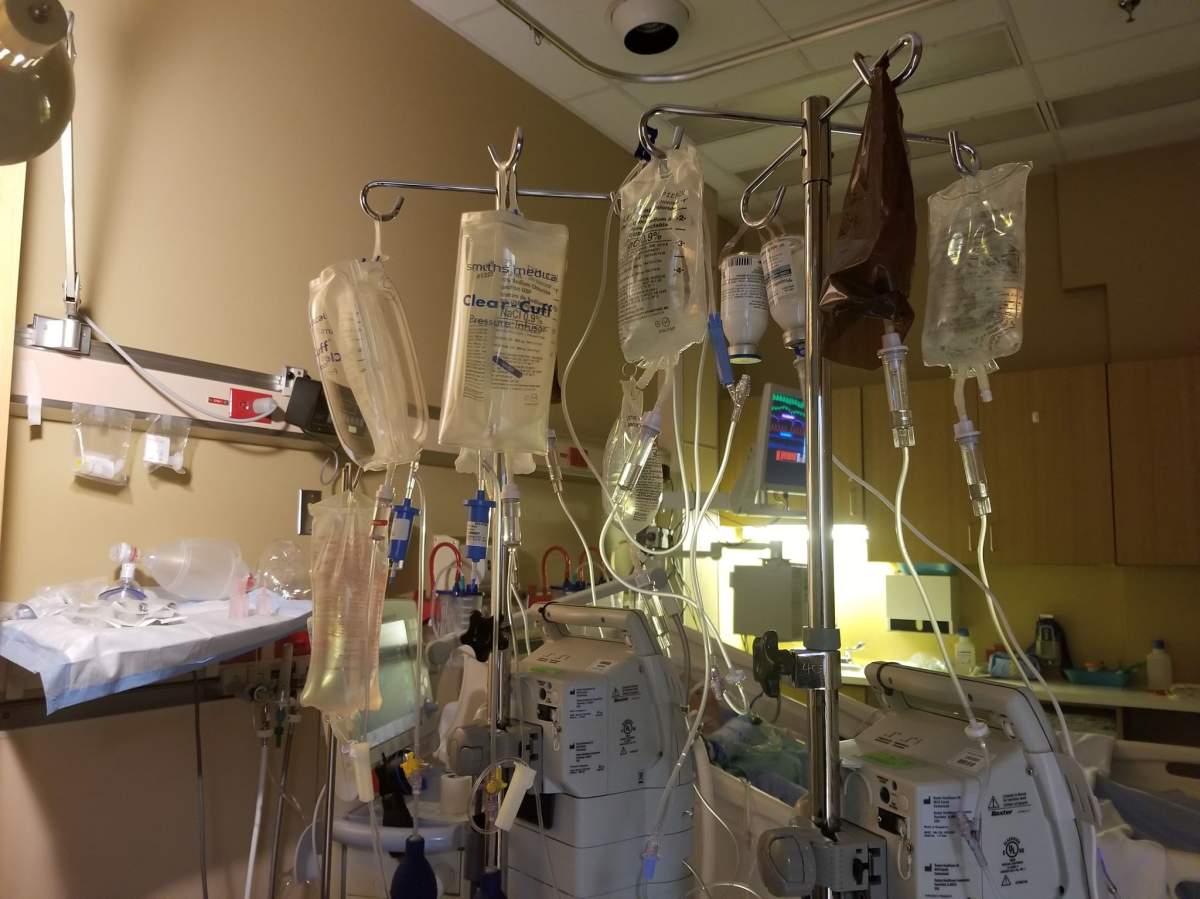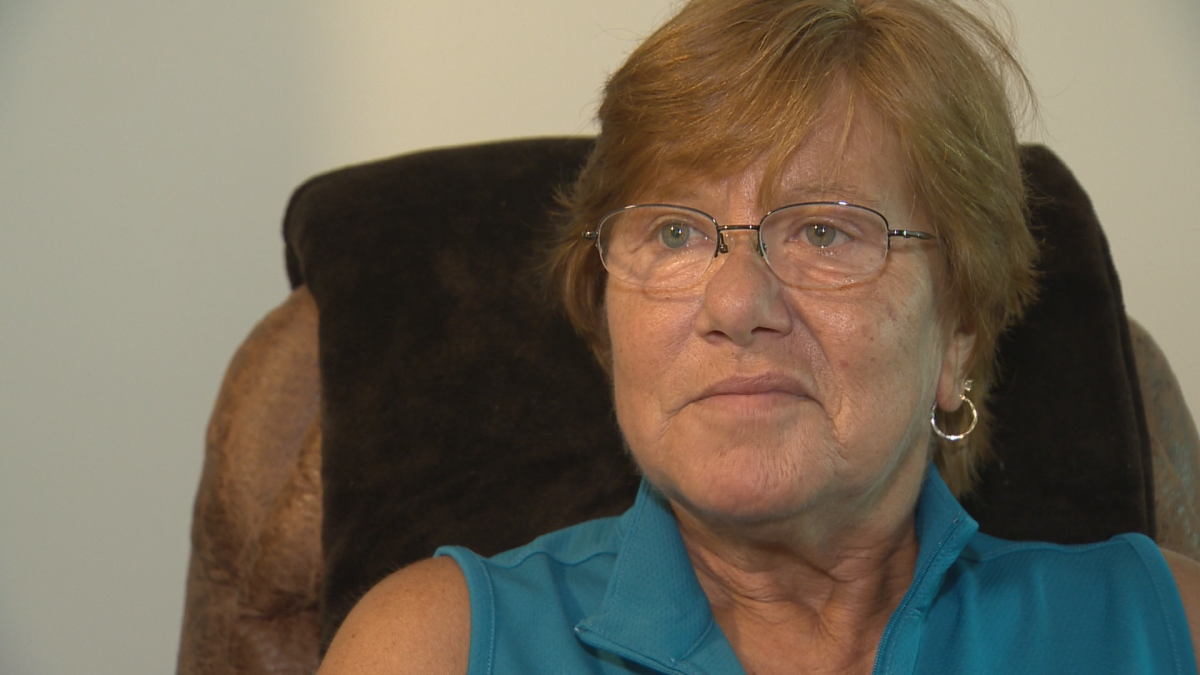A Moncton woman says she had no idea what Legionnaires’ disease was until she woke up from a medically-induced coma and was told she was diagnosed with it.

Claudette Lirette, 54, says she woke up during the overnight hours of July 18 and the rest was a blur.
“I got up to go to the bathroom and I passed out in there and I don’t remember a thing after for the first six days,” she says.
“I was in the hospital, I didn’t know what was going on at first and then I finally realized where I was.”
“I got a call from the doctor at ICU, and I guess while she was on the fourth floor, she started having problems breathing,” says Linda DeMone, Lirette’s sister. “So they took more X-rays and more blood tests and that’s when it came up that she had Legionnaires’.”
While Lirette says she doesn’t remember much between losing consciousness in the washroom and waking up in the hospital, her sister recalls, “she just felt like she just had the flu.”
But when Lirette realized the scope of Legionnaires’, she says it was “Very scary… Because you don’t know if you’re going to live or die.”

Get weekly health news
She says she was discharged from the Dr. Georges-L.-Dumont University Hospital Centre July 29.
The severe form of pneumonia, which can be fatal, can be treated with medication.
According to the Department of Health, fever, chills, cough, shortness of breath, muscle aches and headache are all symptoms of Legionnaires’ and it urges you to “promptly seek medical care or call 811.”
Earlier this month, the province confirmed it was investigating to determine the source of nine cases of Legionnaires disease in Greater Moncton and that samples were taken at 26 buildings in western portion of the city.
Interviews were done regarding the cases, according to Dr. Yves Léger, the regional medical officer of health.
While Legionnaires’ can’t be transmitted from person to person, the province says sources include natural bodies of water including lakes, ponds and streams. It can also, however, be contracted through some air conditioners, cooling towers and spas.
Proper maintenance of water systems and maintaining hot water at 50°C or warmer in hot water tanks are two ways to prevent the disease.
WATCH: (Sept. 67, 2018) Legionnaire’s disease outbreak closes Surrey Walmart

Lirette says she’s thankful she received proper treatment.
“They were checking my lungs almost every day,” she says, “because I could have been breathing in the bacteria and they didn’t know where it was coming from.”
Lirette, who lives with epilepsy, says she feeling weaker than before the Legionnaires’ diagnosis and is frequently getting ‘the sweats,’ but other than that she’s doing a lot better.
No one from the Department of Health was available for comment on the story, but a spokesperson says an update on the outbreak is expected later this week.











Comments
Want to discuss? Please read our Commenting Policy first.